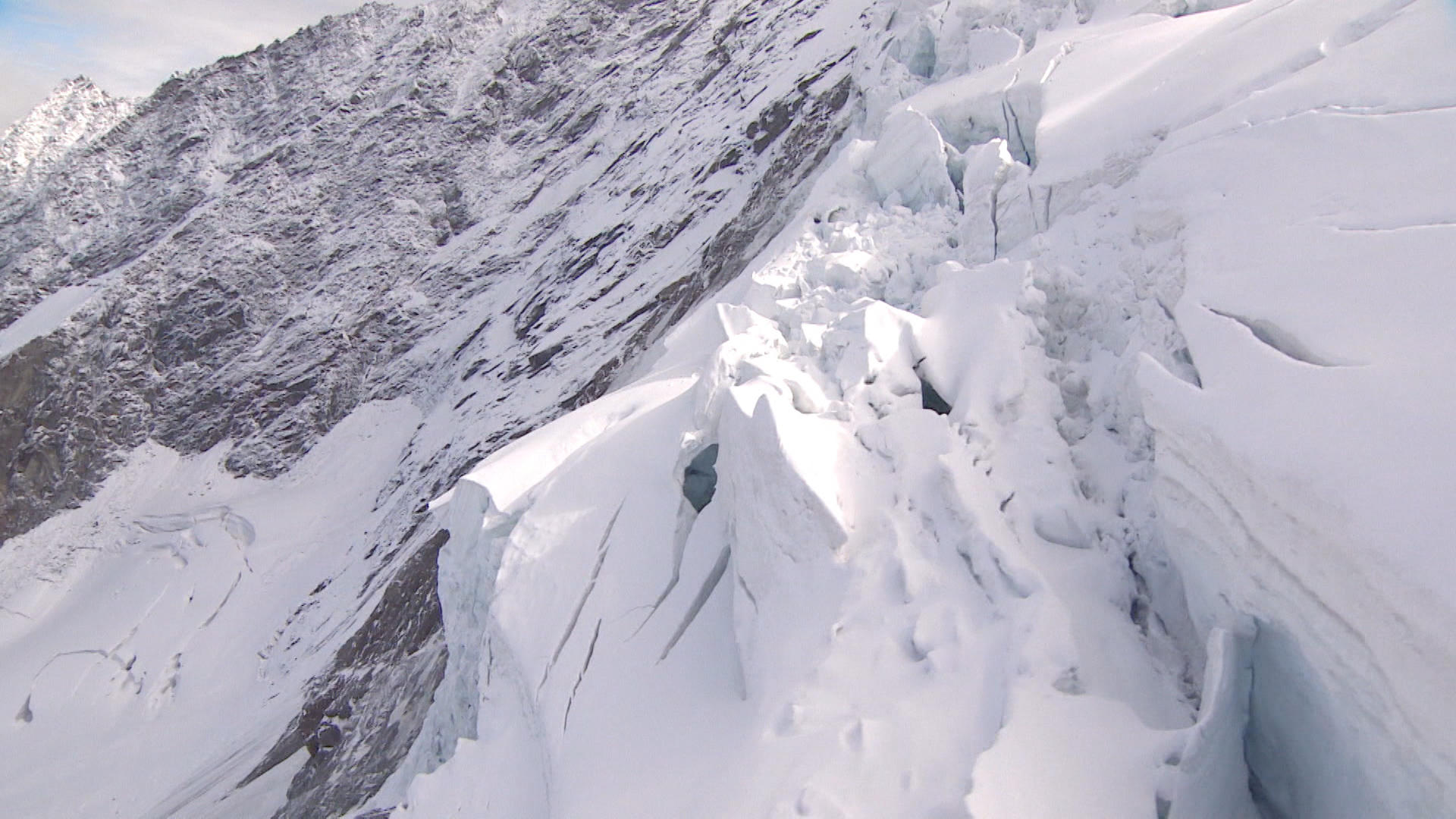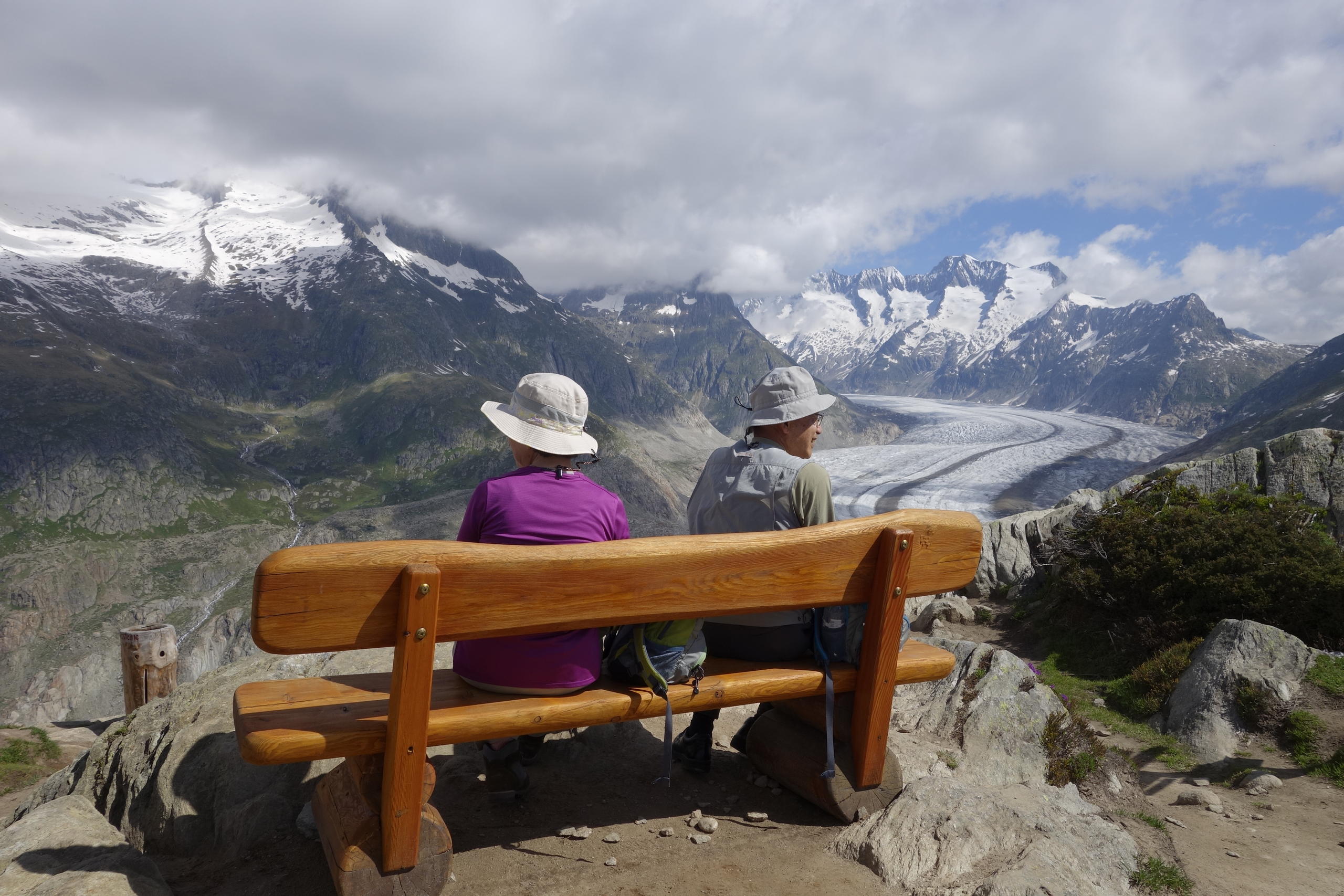Most glaciers in central Switzerland to disappear by 2090

The vast majority of glaciers in central Switzerland will have totally disappeared by the end of the 21st century, a study by Fribourg University has revealed.
Around 90% of the Hüfi Glacier in the Glarus Alps mountain range in central Switzerland will have melted by 2090, according to canton Uri’s environmental protection service, which commissioned a study into the state of the region’s glaciers.
All other glaciers in canton Uri and central Switzerland face a similar fate, it added.
The study found that in the Reuss Glacier region 1.4 cubic kilometres of ice, or 15km2 of the glacier’s surface area, melted between 1973 and 2010; only 60km2 is still frozen.
The melting glaciers are transforming the local landscape. For centuries, glaciers have carried rocks downhill and created deep hollows. These are expected to form new lakes. This phenomenon is already visible in the Hüfi region, where a lake was created after ice receded.
Melting glaciers will also have an impact on the supply of water. By the end of the century, the flow of water in streams, rivers and groundwater could fall by 60% in August and September, according to the survey. During periods of drought, water supply may be difficult, it added.
A 2014 study led by scientists at the University of Bern found that Switzerland’s annual mean air temperature has increased by 1.75 degrees Celsius over the past 150 years and is projected to rise even faster until the end of the 21st century, depending on the emission scenario, accompanied by changes in other variables such as precipitation, snow cover, and run-off, thought to be a result of climate change, and glaciers slowly melting away leaving just rocks and debris.
Scientists predict that over the next 50-100 years Switzerland could face a 3 degrees Celsius temperature increase due to climate change.

In compliance with the JTI standards
More: SWI swissinfo.ch certified by the Journalism Trust Initiative














You can find an overview of ongoing debates with our journalists here . Please join us!
If you want to start a conversation about a topic raised in this article or want to report factual errors, email us at english@swissinfo.ch.